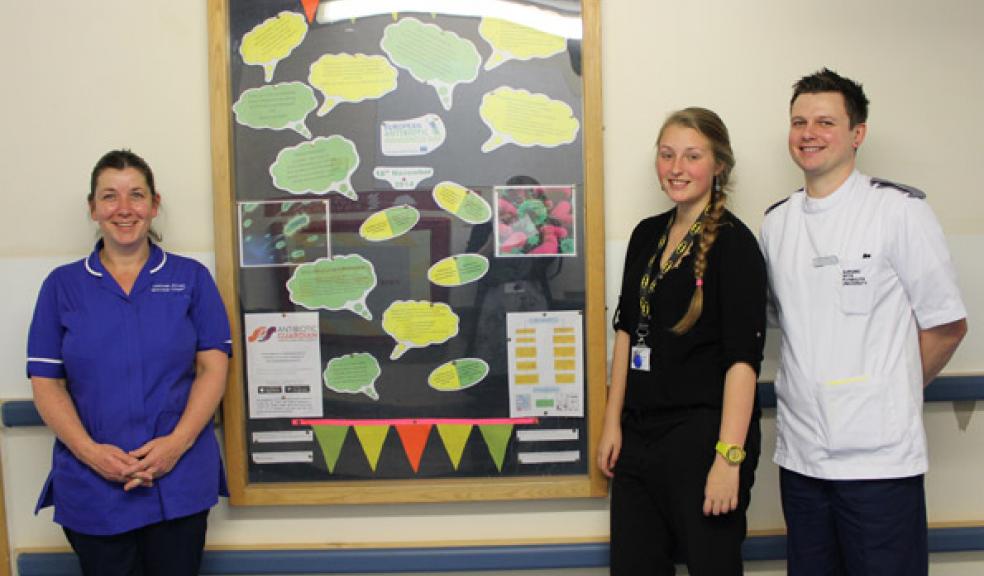
Raising awareness of the correct use of antibiotics
Members of our Infection Prevention and Control Team have designed a display board in Derriford Hospital to highlight to colleagues, patients and members of the public the importance of using antibiotics correctly.
The display board, on level 7 of Derriford Hospital, put together by Tash Tait of the Infection Prevention and Control Team, provides interesting facts on antibiotics, what is antibiotic resistance and key points on the right way to take the medication.
Debbie Alford, Lead Nurse Practitioner in the Infection Prevention and Control Team, explains: “Antibiotic treatment is widely used in hospital and community settings and is an effective, safe and inexpensive treatment, which has saved millions of lives. However, it is also recognised that some bacteria can be resistant to it and it cannot be used for everything, particularly ailments such as the common cold, flu, etc.
“Therefore we wanted to raise awareness of how we can all help, such as reminding people that you should only take antibiotics when they are needed and prescribed by their doctor, that leftovers are not kept for later use and they are disposed of in the correct way.”
Nicola Joyce, Antibiotic Pharmacist, added: “Some bacteria are naturally resistant to certain antibiotics others become resistant as a result of overuse or inappropriate prescribing. A worrying problem is when bacteria, that are normally susceptible to antibiotics, become resistant as a result of genetic change. This is called acquired resistance”
“Infections caused by resistant bacteria may require admission to hospital, as well as alternative and more expensive antibiotics, which may have more severe side effects.”
The team have put the board together to coincide with European Antibiotic Awareness Day, which was on Tuesday 18 November 2014.
Facts on Antibiotics
How can we help?
• Remember: take antibiotics only when they are needed and prescribed by your doctor
• Do not keep leftover antibiotics for later
• Ask your pharmacist to dispose of the remaining medicines
• Avoid disposing of them in the bin or down the sink as it can get into our water supplies and food chain.
What are the causes of incorrectly taking antibiotics?
If you do any of the following, you will not have enough of the drug in your body and the bacteria will survive and become resistant:
• shorten the duration of treatment
• not take as prescribed
• skip doses
• not take at regular intervals
• save some for later
What is antibiotic resistance?
When a bacterium becomes resistant many antibiotics lose their ability to kill or stop bacterial growth. Some bacteria are naturally resistant to certain antibiotics, others become resistant as a result of overuse or inappropriate prescribing.
What is Plymouth Hospitals NHS Trust doing?
We take an integrated ‘One Health’ approach strategy, which includes surveillance of antibiotic resistant infections, promoting responsible prescribing and use of antibiotics and good infection control.
The right antibiotic for the right patient, at the right time, with the right dose and right route, causing less harm to the patients.













